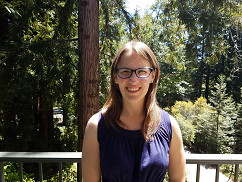Helping and Hindering Undergraduate Women’s STEM Motivation: Experiences with STEM Encouragement, STEM-Related Gender Bias, and Sexual Harassment
By Campbell Leaper and Christy Starr
From Psychology of Women Quarterly
#MeToo and other feminist social movements have highlighted the prevalence of sexual harassment and gender-biased treatment, as well as how damaging they can be. Sexual harassment includes unwelcome or inappropriate sexual advances, while gender bias includes negative comments about women’s competence. Sexual harassment and gender-biased treatment are forms of sexist discrimination that may be more common in certain fields, such as science, technology, engineering, and math (STEM). Experiencing sexist discrimination may lead women to leave these fields, resulting in gender gaps in STEM—which are among the highest paying occupations with the greatest growth.
In our study, we asked over 600 women in introductory biology classes how often they had experienced sexual harassment and STEM-related gender-biased treatment from their instructors (either a professor, teaching assistant, or graduate student), classmates, and friends. We additionally asked the extent they felt supported in STEM from friends and family. While taking students’ grade point averages (GPA) into account, we investigated whether these experiences predicted their STEM motivational beliefs (confidence or intrinsic interest) and STEM career aspirations.
Most women in our survey reported that in the past year they had experienced some form of sexual harassment or STEM-related gender bias at least once. In turn, these experiences were negatively related to women’s STEM motivation even after taking into account their GPA.
First, experiencing sexual harassment from instructors predicted lower STEM motivation and career interest. Sexual harassment from instructors may be especially harmful because it may lead a feeling of institutional betrayal.
Second, experiencing gender bias in STEM from classmates was also negatively related to women’s STEM motivation and career aspirations. Sexism from classmates may undermine women’s sense of belonging in the major and they also may be viewed as indicative of future work colleagues.
Finally, there was positive news. Felt encouragement from friends for STEM was positively related to women’s STEM motivation and career aspirations. Also, felt encouragement from family was additionally related to stronger STEM career aspirations. Feeling supported from friends may help affirm iwomen’s STEM identities. Family support may be an especially helpful resource when women are considering their long-term commitment to pursing a STEM occupation.
Although the #MeToo movement has largely focused on sexual harassment and other forms of sexism in Hollywood and the business world, our findings complement other studies finding it is also a widespread problem in STEM fields. Sexual harassment and gender bias in STEM undermine women’s STEM motivation, leading to fewer women in STEM fields. Addressing sexism in STEM in educational and work contexts is needed to promote women’s potential and gender equality in society
Article details
Campbell Leaper, Christine R. Starr
DOI: 10.1177/0361684318806302
About
Campbell Leaper is Professor and Chair of Psychology at the University of California, Santa Cruz. His research program investigates aspects of gender development and sexism during childhood, adolescence, and adulthood. This has included several studies on sexism and gender bias among girls and women in STEM. Professor Leaper has served on the editorial boards of Child Development, Developmental Psychology, and Sex Roles; and he is co-chair and organizer of the Biennial Gender Development Research Conference.
Christy Starr is a doctoral candidate in developmental psychology at the University of California, Santa Cruz. Her research has examined how gender stereotyping and sexism differentially affect STEM interest in girls/boys and women/men. In addition, she has investigated how concerns with physical appearance may undermine girls’ confidence and interest in STEM.


